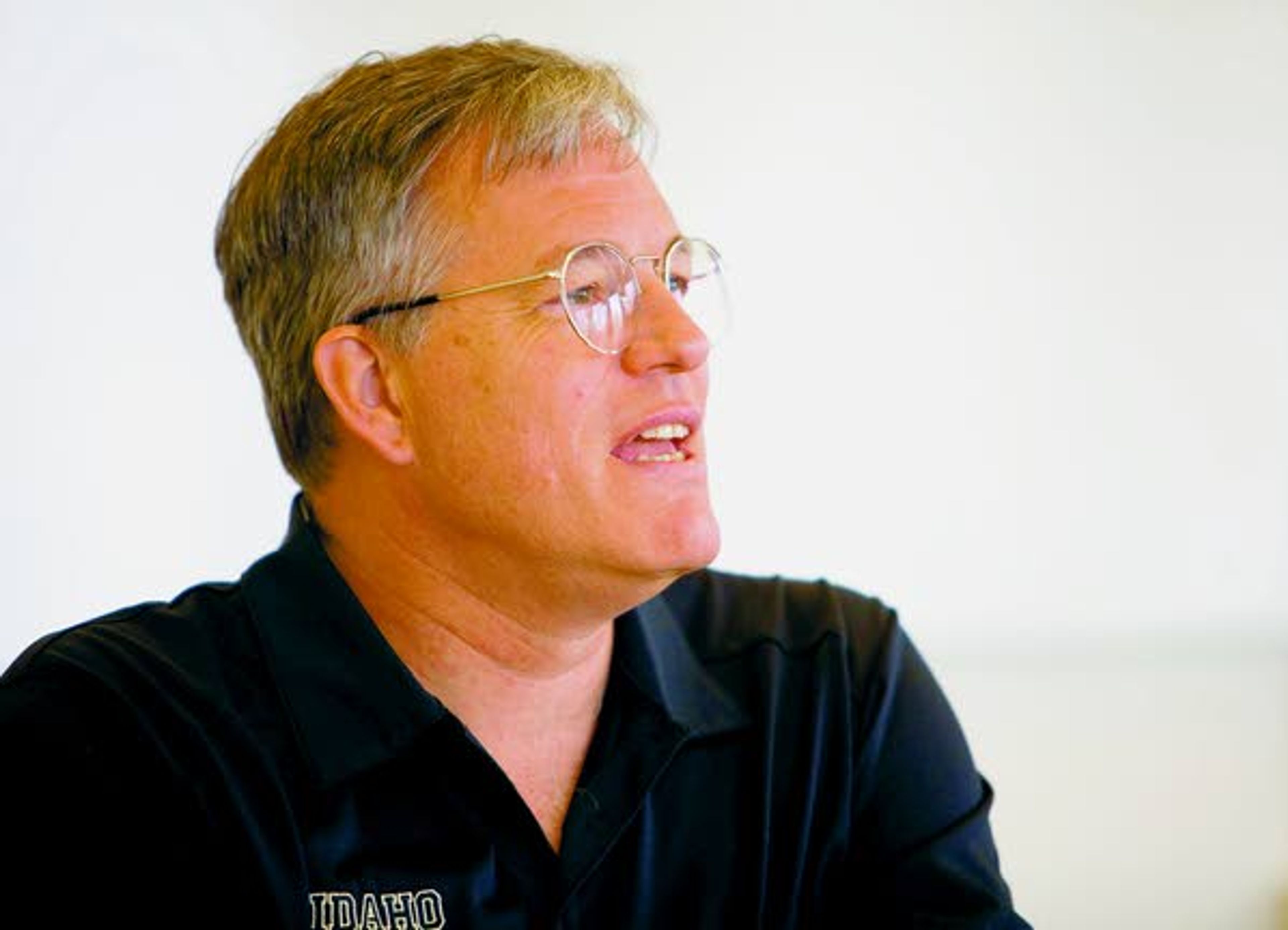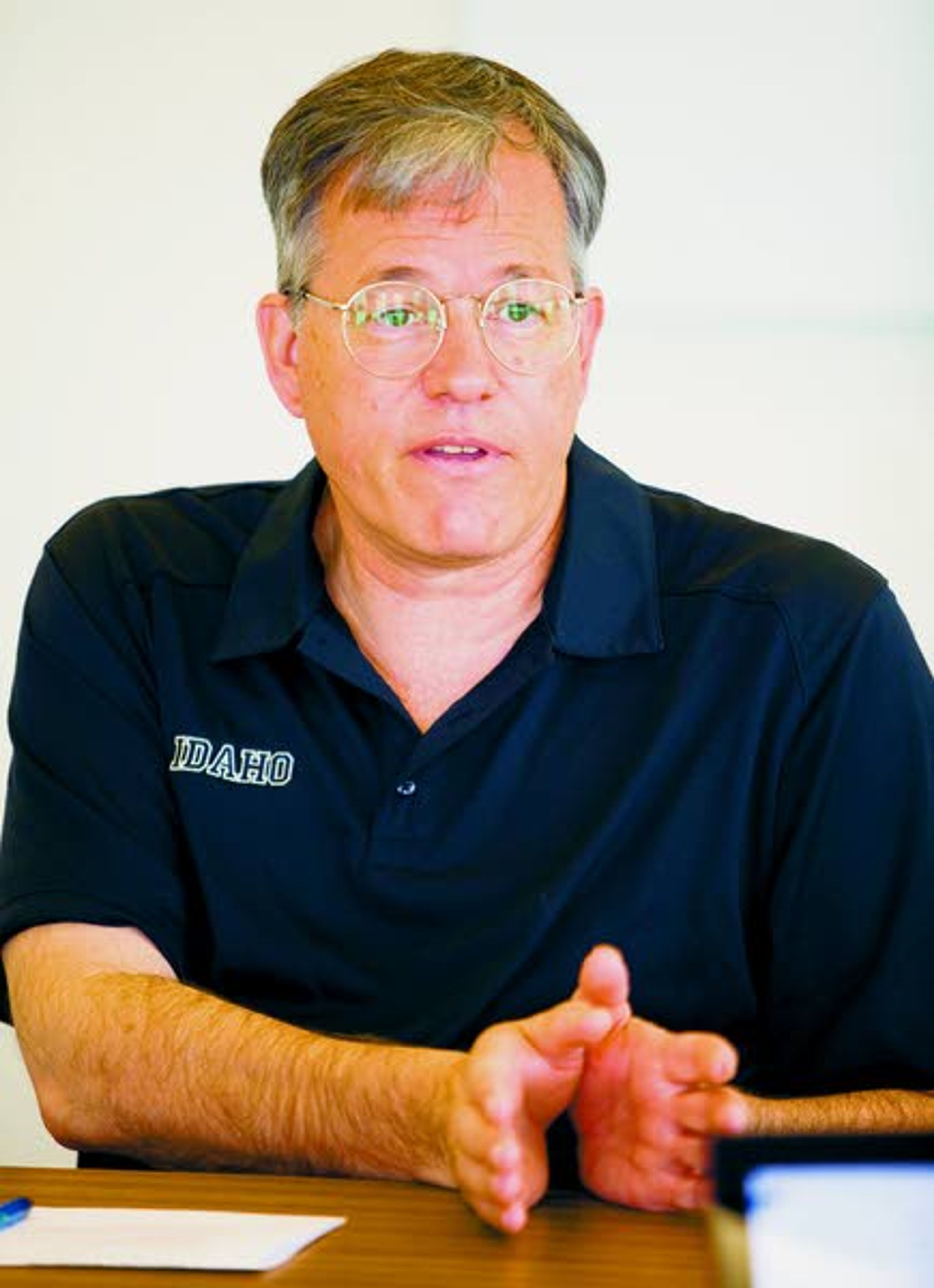University of Idaho president: More students, safer campus
Enrollment projections for the fall semester looking stable
New University of Idaho President Chuck Staben has spent his first 80 or so days listening and learning from the communities around him, and now the newest Vandal is off and running.
Having come to Idaho during a period of change and reform, Staben is confident the university offers a great value and education to its students and is ready to embrace the 60 percent post-secondary credential goal set forth by state leaders.
Currently, institutions across the state provide an education to nearly 39 percent of Idaho inhabitants, and the State Board of Education as well as Idaho's business leaders want to increase that number by nearly 20 percent, he said
Staben said the UI now has 10,000 students and looks to recruit an additional 5,000 during the next few years.
"I think we need to be more strategic and aggressive in enrollment management strategies. I think we haven't been as effective in marketing the value that we offer students and families as we could be," Staben said.
Staben told the Daily News editorial board Friday the university needs to work on recruiting more efficiently across the state, particularly in the markets in southern and southeastern Idaho.
"Students need to understand that they can go to college, No. 1, and that the University of Idaho is a good place for them to go to college," Staben said.
Staben said this means working more with the high schools around the state and possibly making some changes in how they position university communication personnel in areas such as Boise and Idaho Falls.
He said the census estimates there are 650,000 people in Idaho ages 25-54 who do not have a bachelor's degree or higher - a very large pool of possible university candidates. He said even if 1 percent of those individuals chose the UI it would garner 6,000 additional students.
In the past, increased enrollment numbers launched financial concerns for faculty and staff, as well as work load. Staben said he believes if enrollment numbers are increasing, the state Legislature would probably be more inclined to provide additional funding. Plus, growing enrollment numbers generate additional resources for the university.
"We have what I call marginal capacity - we can add students without necessarily adding at the same rate the resources to educate those students. They will generate tuition resources that will enrich the university financially," Staben said.
For example, Staben said when he was a faculty member he was teaching an introductory biology class to nearly 300 students. He said it would have been a minimal additional load to take on 400 students, but where it matters is when the school has to add an entire additional class. He said there is room to grow without having to increase all resources.
Staben has also said he is interested in increasing international students to 10 percent, up from the 6 percent already present. He said beyond adding diversity and "international flavor" to the campus, these students are typically paying out-of-state, full tuition, which brings a large financial benefit to the university.
He said enrollment numbers for the fall are stable and similar to last year in terms of first-time, full-time freshman, continuing students and students in the centers around the state. The university is bringing on an enrollment management expert in June to help evaluate where numbers need to be in the future.
The university is also going through a "focus for the future" process mandated by the State Board of Education to evaluate which programs at the school have strength or need to be stronger and which programs are least important.
"The goal is to save some money in those programs that were deprioritized and to apply funds to those that are most essential or of highest priority," Staben said.
He said these decisions have been difficult to make for both academic and nonacademic programs. The university will present its findings at the SBOE meeting in August.
Staben joined the university a few short days before a new state bill was passed allowing guns on campus. He said the university is, has been, and will continue to be, a safe campus. He has charged a task force headed by public safety and communications faculty of the university to work on the implementation of the law, which will go into effect July 1.
"Our campus is really a statewide campus," Staben said. "We have a huge campus here in Moscow, but we have places in Coeur d'Alene, Boise, Idaho Falls, Twin Falls and extension and research centers in 42 of Idaho's 44 counties. We have people all over the place and we think of that whole thing as our campus, which has some interesting aspects in terms of enforcement."
The task force is expected to finish in the next few weeks and report back to Staben with concrete recommendations and communication on how to implement the law.
"We want ... faculty, staff, students, parents, and our perspective students to understand what this law means and what it doesn't mean," he said.
Staben will be traveling to different areas around the state during the summer months working to meet more Idahoans.
"We have a great university, we have a lovely town. I don't think there is much argument that we are a great educational institution," Staben said. "I think we are doing very well for the state of Idaho, and I am happy to be here."
Sunny Browning can be reached at 208-883-4639 or by email at sbrowning@dnews.com.



